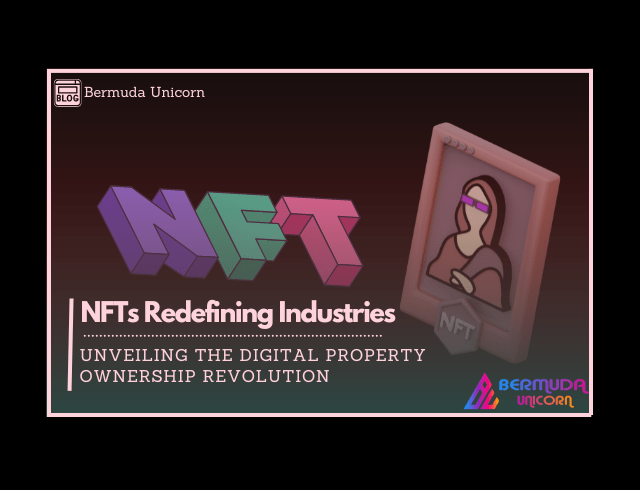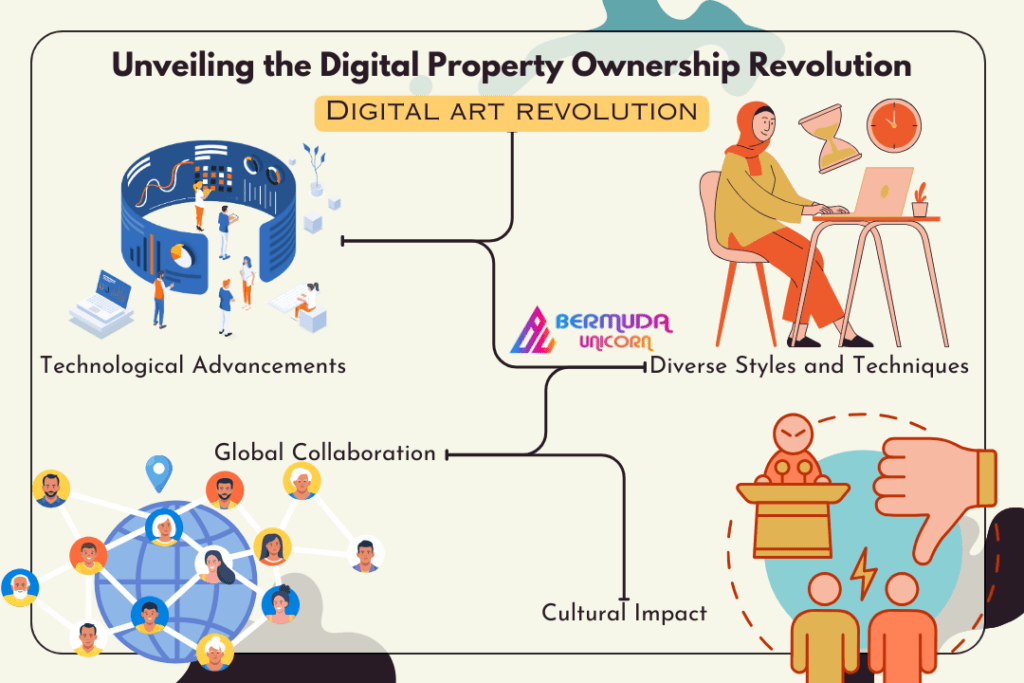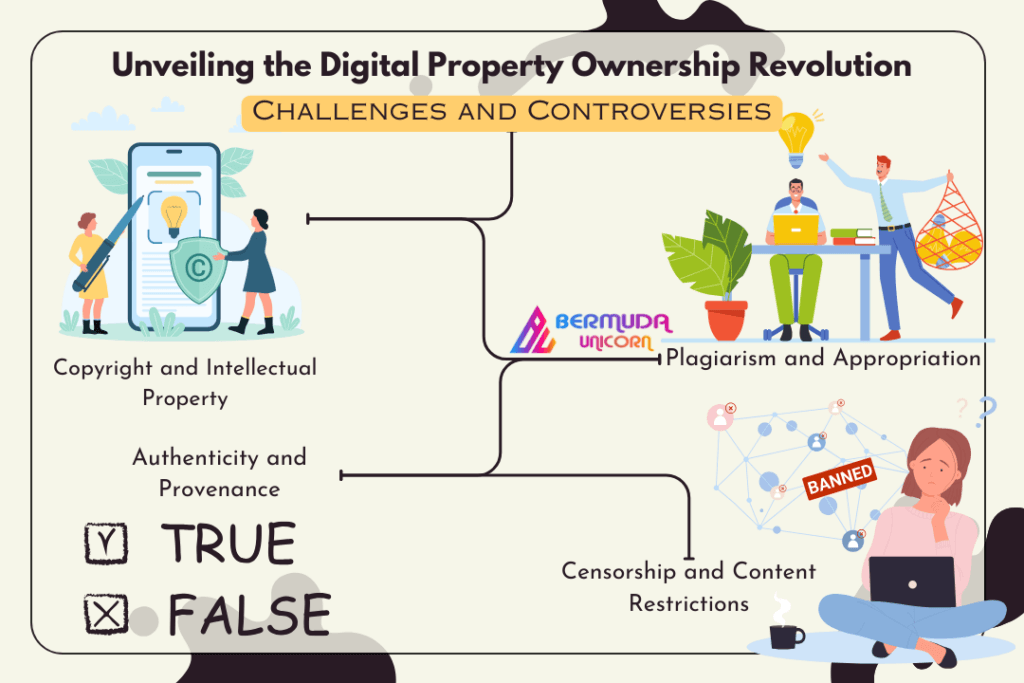![]()

In the digital age, where bits and bytes rule supreme, the concept of ownership has taken on an entirely new dimension. Enter Non-Fungible Tokens (NFTs), the game-changers poised to redefine industries and revolutionize the way we perceive property ownership in the digital realm.
Unveiling the Enigma of NFTs
NFTs, or Non-Fungible Tokens, represent a groundbreaking development in the world of digital property ownership. Also, these unique digital tokens are indivisible, irreplaceable, and inalterable. Also, each NFT serves as a distinct certificate of authenticity, representing ownership of a specific digital asset, whether it’s a piece of art, a collectible, a piece of music, a virtual item in a video game, or any other form of digital content.
NFTs’ uniqueness and immutability distinguish them from their fungible counterparts (such as Bitcoin or Ethereum). Each NFT carries its own unique value, meticulously recorded on a blockchain—a decentralized, tamper-proof ledger—ensuring transparency and authenticity in ownership.
The Digital Art Renaissance

One of the most captivating aspects of NFTs is their profound impact on the art world. Also, artists now have the unprecedented ability to create, sell, and own digital artworks with ironclad proof of authenticity. Concerns about forgery and murky provenance are rendered obsolete. Through NFTs, artists can prove the authenticity and rarity of their creations, not to mention receiving a percentage of the proceeds with each resale, thanks to smart contracts.
This newfound power has given rise to a digital art renaissance, with creators pushing the boundaries of what’s achievable in the digital realm. Visionaries like Beeple, whose artwork sold for a staggering $69 million in early 2021, have shown the immense potential for artists to gain recognition and financial independence in the NFT space.
Gaming and Virtual Real Estate
NFTs have also ushered in a gaming revolution. In-game items, skins, and collectibles can now be tokenized, providing players with genuine ownership of their digital assets. Gamers can trade, sell, or even use their NFTs across multiple games or virtual worlds, elevating the value of their gaming experiences.
Furthermore, NFTs have given birth to virtual real estate. Virtual worlds like Decentraland and The Sandbox enable users to purchase, sell, and develop virtual land parcels. NFTs secure ownership of these digital plots, granting landowners creative autonomy and a stake in the ever-evolving virtual landscapes.
Music, Media, and Beyond
The influence of NFTs extends to the music and entertainment industries. Musicians can release exclusive tracks or concert tickets as NFTs, guaranteeing their most devoted fans access to exclusive experiences and collectibles. The film and literature sectors are also exploring NFTs to provide collectors with special editions, exclusive content, and even royalties through tokenized ownership.
Challenges and Controversies

Despite their immense potential, NFTs face challenges and controversies. Critics have raised concerns about the environmental impact of blockchain networks, as many NFTs are minted on energy-intensive platforms like Ethereum. Additionally, the market has witnessed scams and copyright disputes, highlighting the need for robust regulation and security measures.
FAQs (Frequently Asked Questions)
1. What exactly is an NFT?
– An NFT, or Non-Fungible Token, is a unique digital token that represents ownership of a specific digital asset. Also and unnlike cryptocurrencies like Bitcoin, each NFT is distinct and inseparable, making it a digital certificate of authenticity.
2. How do NFTs work?
– NFTs are typically created, bought, and sold on blockchain platforms using cryptocurrency. The blockchain records the ownership and transaction history of each NFT. Also ensuring transparency and security.
3. Can I create an NFT of any digital content?
– In theory, yes. Many digital assets, including art, music, videos, and virtual items, can be tokenized as NFTs. However, legal and copyright considerations may apply, so it’s essential to understand the rights associated with the content.
4. Are NFTs environmentally friendly?
– Many NFTs are currently minted on energy-intensive blockchain networks, raising environmental concerns. However, efforts are underway to develop more eco-friendly blockchain solutions.
5. Are NFTs a good investment?
– NFTs can be highly speculative, and their value can fluctuate significantly. While some have made substantial profits, it’s crucial to research and approach NFT investments with caution.
As with any transformative technology, NFTs will face hurdles and growing pains along the way. However, their impact on our understanding of ownership and the possibilities they unlock for creators and collectors make them a force to be reckoned with in the digital age.
In this brave new world of NFTs, we are witnessing the dawn of a digital property ownership revolution—a revolution that will reshape industries and empower individuals like never before. Embrace it or critique it, the NFT phenomenon is here to stay, altering the digital landscape in ways we are only beginning to comprehend.
